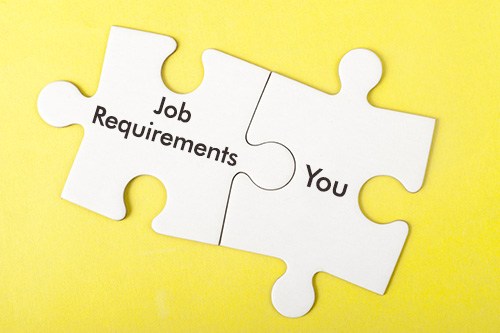Your career Q&A: Matching Your Resume to the Job Description
This week’s column prepares midcareer HR professionals to make job transitions. Best-selling author Martin Yate, a career coach and former HR professional, takes your questions each week about how to further your career in HR. Contact him at the e-mail address at the end of this column.
I’ve been an HR manager for more than 30 years in a variety of businesses. My spouse and I relocated from the southwestern United States to the Southeast a year and a half ago, and I’ve been job hunting since without success. I’ve taken all of the following steps: created a LinkedIn profile, joined the local SHRM chapter, volunteered for committee service, signed up with temp agencies and networked at every appropriate opportunity. I’ve taken 20 years of experience off of my resume so I can avoid the “overqualified” label, and I’ve created search agents on all of the major job sites and many local and national HR websites. I’m struggling to find a position, and I’m thinking I’ll have to try another field since I’ve had no luck in HR. Any suggestions?
Anonymous in Southeast
If you have taken all these actions and are not getting interviews, it probably means your resume and social media profiles, sitting in separate databases, are not being discovered.
This most often happens when your resume strives to show as broad a range of skills as possible and is based on what you think is important, rather than what the employers are requesting. When recruiters search resume and social media databases, they do so with a job description in hand, using search terms specific to that job description. This means you need to tailor your resume to the attributes that individual employers value. Your resume will be more discoverable when it is focused on a specific job and reflects the priorities and language that the employer is using to describe that job.
Because nearly all recruitment has moved online, resume writing and job search tactics have had to change in response. When I counsel professionals suffering through a prolonged job search, the causes are alarmingly similar: When the search starts, they think they know what they’re doing. Then as the campaign sputters along, they pick up bits and pieces of conflicting and poor advice along the way (anyone can claim to be an expert on the Internet). The result is an approach to a job search that looks more like a plate of spaghetti than a coherent approach to a timely transition.
This can be especially so for professionals with an HR background who can mistake their skills in recruiting and selecting others for knowledge of how to conduct their own job search. Most HR professionals who are not recruiters are primarily concerned with the evaluation and judgment of candidates and most have little knowledge of what it takes to get on HR’s radar in the first place.
When you recognize your job search plan isn’t working, step back and re-evaluate. Take the day off and go for a long walk to blow the cobwebs away while you consider where, when and from whom you learned your job search and career management strategies (it’s a question most people cannot answer). Then come home and invest a week in learning a coherent approach to making a job transition and the elements of career management that will stop you from landing in this predicament again.
Another issue that could be playing into your stalled job search might be the size of company that you are pursuing. Many Baby Boomers are used to successful careers in substantial and mature companies; we leave one only to join another very similar outfit.
Yet substantial, mature companies are the prime targets of mergers and downsizing initiatives. So trying to get into one later in your career isn’t always a smart move because age and wage discrimination can paint a target on your back.
There is an alternative: The Bureau of Labor Statistics has long held that 80 percent of the job growth in America comes from young companies (less than 10 years old) and small companies (less than 500 employees). These smaller companies probably won’t have the salary and perks of large companies, but they are far more likely to recognize the value of your experience and ability to wear different hats; plus, you have probably already dealt with the growth problems they are facing—and on someone else’s payroll.
I’ve been working for the same company for more than 25 years, and throughout that time, I’ve held several different jobs and experienced some career advancement. But during the past 11 years, I’ve been in the same role. I enjoy my job, as I’m able to use my creativity to develop programs and initiatives within my area. However, there is little opportunity for advancement and my pay has been stagnant (my company lags behind the market in compensation). I’ve been looking for outside opportunities and I feel that my longevity is a hindrance in my job search. On my resume, I provide information on the various HR programs that I’ve developed to reflect my initiative and my personal/professional growth. Still, I feel like I can’t get noticed in the crowded pile of resumes. Any suggestions?
Anonymous in Colorado
Funny thing: you are good at your job and have a steady work history, yet you are worried that these things are perceived as negatives. Job hoppers with, say, five jobs in as many years have cause to worry—you don’t.
Rather than job hopping, you have taken the rough with the smooth that goes with every job. You’ve been a team player who makes a difference with your presence every day. And instead of clock-watching, you have developed considerable expertise in your role. This is who you are; own it and be proud.
Your worries stem from awareness that time has passed and you aren’t where you expected to be. We all have these times of introspection and re-evaluation, and they always come before we make course corrections, so your uncertainty is absolutely normal.
One potential cause for being overlooked could be the kind of job you are pursuing with your resume. We get hired based on our credentials and not our potential, meaning that having spent five years as an HR generalist, your next job is unlikely to be an HR manager. Your next job is much more likely to be a job similar to the one you hold today—hopefully an opportunity that offers a fresh start and some growth potential that you can leverage by identifying and developing the skills required to take the next logical step up your professional ladder.
Another cause could be how your resume is focused and how it is built. Take your resume and compare it to a typical job description for the kind of job you are targeting and ask yourself: “Does this resume demonstrate my ability to do this target job, reflecting the job’s priorities and using language that resonates with the job description?” If not, and if your resume is just an honest recitation of what you think is important, then I think you’ve found a problem you can fix.
See my response above to Anonymous in Southeast for a specific discussion of resume issues that could have relevance for your situation.
A Question to You from Martin
Age and wage discrimination is illegal, yet to deny its existence would be disingenuous. What role do we in HR play in this? (See “When Interviewers Press for Birth Dates and Grad Dates, Is It Discriminatory?” from SHRM Online’s Diversity section.) Are workers in their 50s and early 60s really of less value, and if so, what about the 62 U.S. senators who are 60-plus—are they worth less, too? What is our role in this: Are we “just following orders” or is there something we could or should do? And what does your own professional future look like in this context? Send your response to the e-mail address below—we look forward to hearing from you.
– See more at: https://shrm.org/hrdisciplines/orgempdev/articles/pages/career-qa-matching-resume-to-job-description.aspx#sthash.t5pLwn8G.dpuf



